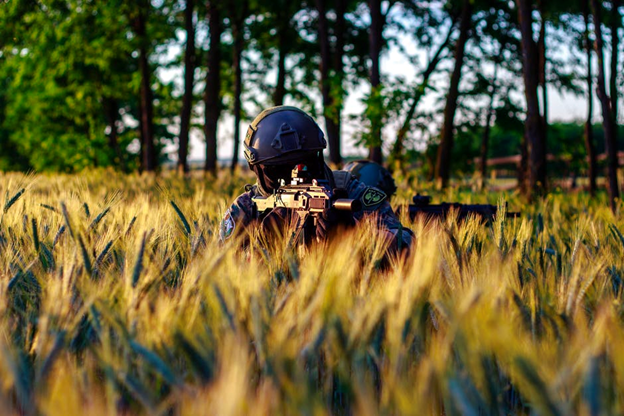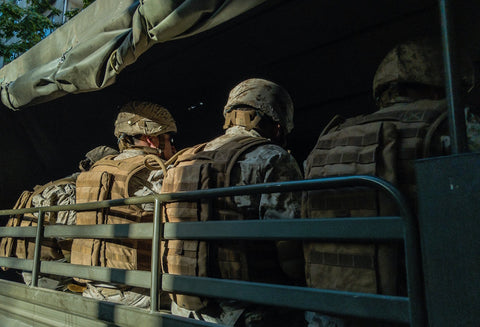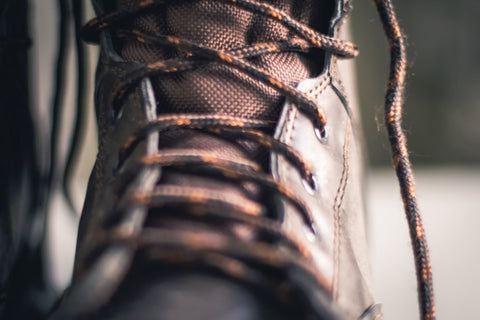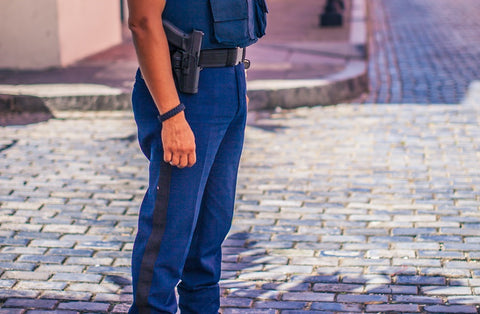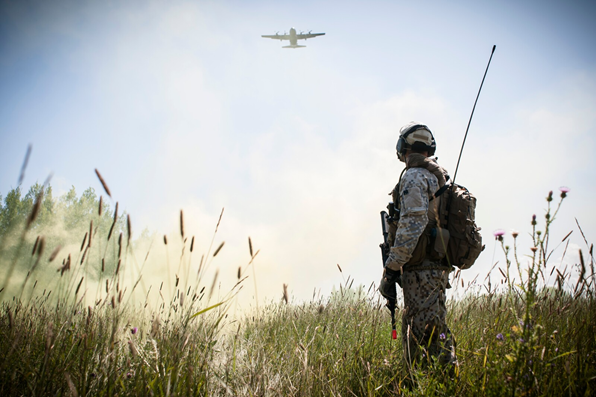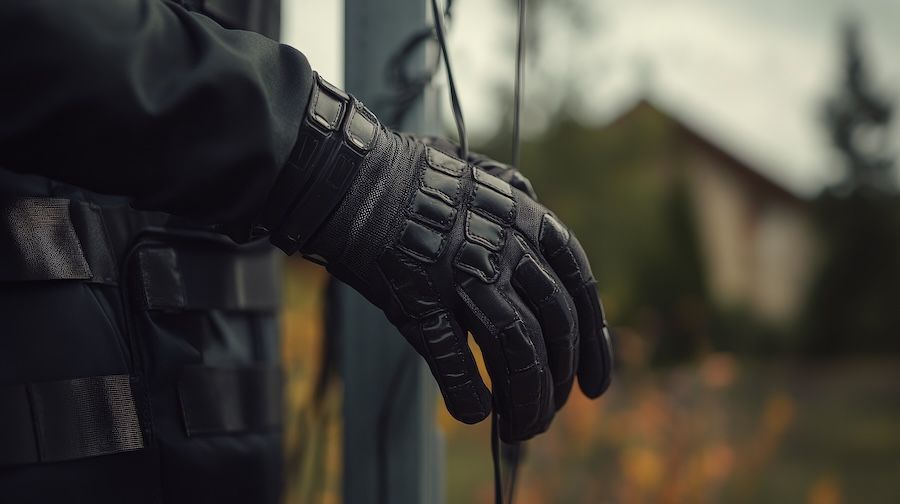Non-Lethal Tactical Solutions for Mental Health Professionals
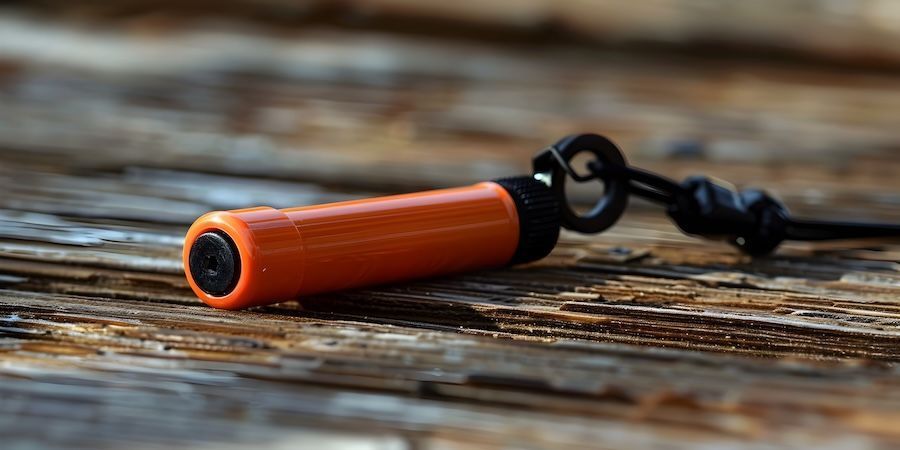
Your work as a mental health professional is invaluable. You spend your days helping others navigate their struggles and guiding them toward stability and growth. But let’s be honest - this work isn’t always predictable. Whether you’re meeting clients in their homes, supporting individuals in crisis, or engaging with at-risk populations, the environments you step into can be filled with unknowns.
It’s not just the emotional toll that’s challenging. The situations you encounter can sometimes escalate without warning. Maybe a client is overwhelmed by their circumstances or reacting to stress in a way that feels threatening. Perhaps the space itself poses risks, such as being in an isolated location or in an area you’re unfamiliar with.
You do everything you can to prepare, but not every scenario is within your control.
That’s why personal safety matters. It’s not about fear or mistrust; it’s about being equipped to handle the unexpected with confidence. Having tools that keep you safe while respecting the dignity of those you’re working with is essential. Non-lethal tactical solutions, like tactical flashlights and personal alarms, are practical options that give you an added layer of security. They’re easy to use, effective, and align with the care-driven values of your profession.
This article is here to help. You’ll learn about the unique challenges you face, why non-lethal solutions are a smart choice, and how to incorporate them into your routine.
Let’s explore how you can continue to do the work you love while feeling safer and more prepared in every situation.
The Unique Safety Challenges Faced by Mental Health Professionals
Your job often takes you to places most people never see. Home visits, community outreach programs, or meetings in remote locations are all part of the work. These environments are rarely consistent, and that unpredictability can make your role even harder. One day, you’re visiting a quiet family home. The next, you might be walking into a high-stress situation where emotions are running high.
It’s not just the locations that vary - it’s the people and their circumstances.
Some of your clients may be experiencing acute crises, where their actions are driven by fear, frustration, or a mental health episode. While most interactions remain safe and productive, there’s always a chance for things to take a sudden turn. Verbal aggression could escalate, or a tense situation could shift into physical confrontation.
Isolation is another challenge. Many of your appointments might take place without anyone else around. If something does happen, there may not be anyone nearby to help. Even the simple act of getting to and from your destination - especially if it’s late at night or in an unfamiliar area - can leave you feeling vulnerable.
These realities don’t mean you should live in fear. Instead, they highlight the importance of preparation. Accessible, non-lethal tools can help you feel more secure. They’re not about creating barriers or mistrust but about giving you practical ways to protect yourself when situations become unpredictable.
Why Non-Lethal Solutions Are Ideal for This Profession
As someone who works in mental health, your approach to safety has to balance compassion with practicality. Non-lethal solutions make that possible. They’re designed to protect you without causing lasting harm to others, which aligns perfectly with the care and empathy you bring to your work.
When things escalate, your goal isn’t to overpower or intimidate - it’s to de-escalate.
Non-lethal tools give you options to protect yourself while preserving the dignity of the person in distress. Whether it’s a tactical flashlight to create space or a personal alarm to draw attention, these tools let you respond effectively without crossing ethical lines.
In Canada, the legal landscape supports the use of non-lethal safety equipment, making it a straightforward choice for professionals like you. Tactical flashlights and personal alarms, for example, are fully compliant with the law. These options provide peace of mind, knowing you’re staying within legal boundaries while prioritizing your well-being.
Choosing non-lethal tools isn’t just about staying safe - it’s about feeling confident and prepared.
When you know you have reliable, easy-to-use options at your fingertips, it changes the way you approach your work. You can focus more on helping others, knowing you’ve taken steps to ensure your own safety.
Tactical Pens and Other Self-Defence Accessories
Tactical pens are one of the most practical and discreet tools you can carry for personal safety. They look like a regular pen, but they’re built for much more than writing.
Designed with durable materials, these pens are sturdy enough to double as self-defence tools. They’re easy to carry, blending seamlessly into your daily routine, and don’t draw unnecessary attention.
The effectiveness of a tactical pen lies in its simplicity. You can use it in close-contact situations to defend yourself without causing serious harm. The pointed end is designed to deliver a sharp jab if necessary, creating an opportunity to get away safely. Many models also include features like glass breakers, which can be life-saving if you need to escape from a car or building.
Carrying a tactical pen is as easy as keeping it in your pocket, bag, or clipped to your notebook. To use it responsibly, it’s a good idea to familiarize yourself with its design and practice using it in a safe setting. This way, if the moment comes when you need it, you’ll feel confident and prepared.
Being aware of your surroundings is equally important. A tactical pen works best when paired with strong situational awareness, allowing you to react quickly and effectively.
Beyond their functionality, tactical pens are an excellent choice for mental health professionals because they align with the values of your work. They’re non-lethal, easy to control, and designed to provide a sense of security without escalating a situation. It’s a small tool that can make a big difference when it comes to your peace of mind.
Tactical Flashlights: More Than Just a Light Source
A tactical flashlight is a tool you’ll wonder how you ever lived without. At first glance, it might seem like a regular flashlight, but its features are specifically designed for personal safety. With a tactical flashlight in your hand, you’ve got a dual-purpose tool: a reliable light source and an effective self-defence option.
Most tactical flashlights come equipped with a strobe mode, which can be used to disorient an aggressor. The sudden, intense flashes of light interrupt their focus, giving you crucial seconds to create distance and seek help. Some models also have bevelled edges on the casing, which can be used as a striking tool if absolutely necessary.
The compact design of tactical flashlights makes them easy to carry. Many are small enough to fit in your pocket or attach to your keychain. When choosing one, look for features like adjustable brightness levels, water resistance, and rechargeable batteries. These details ensure your flashlight will be reliable in any situation.
Tactical flashlights are a smart choice for mental health professionals because they’re non-lethal, effective, and versatile. They’re tools that enhance your safety while remaining respectful of the environments and people you interact with.
Additional Non-Lethal Tools for Personal Safety
Sometimes, it’s the small, simple tools that offer the most peace of mind. Personal alarms are one of these options.
These compact devices are designed to emit a loud, piercing sound when activated. The noise is often enough to startle an aggressor and draw attention from others nearby. Personal alarms are lightweight, easy to carry, and require no training to use. You can clip one to your bag or keep it in your pocket, ready to go at a moment’s notice.
Another discreet option is the self-defence keychain. These come in various designs, from ergonomic shapes that fit comfortably in your hand to multi-functional models that include tools like bottle openers or small flashlights. They’re simple to use, offering an additional layer of protection in close-contact situations.
Tactical pens, mentioned earlier, also fall into this category. They work well when paired with other tools like alarms or keychains, creating a comprehensive approach to personal safety.
Integrating Non-Lethal Gear Into Your Routine
Carrying tactical gear is most effective when it becomes a natural part of your daily routine. Start by choosing gear that fits seamlessly into your lifestyle. Tools like tactical pens, flashlights, or personal alarms are small and lightweight, so they won’t feel like an extra burden.
Consider where you can keep them for easy access - your bag, coat pocket, or even clipped to your clothing. The goal is to ensure they’re always within reach without being intrusive or overly noticeable.
Practicing with your gear is just as important as carrying it. Familiarize yourself with how each item works. For example, learn how to activate your personal alarm quickly or how to switch your flashlight to strobe mode.
Regular practice helps you build muscle memory, so you’re not fumbling in stressful situations. You don’t need hours of training; even a few minutes a week can make a big difference.
Balance is key when integrating tactical gear into your work life. As a mental health professional, you want to maintain a compassionate and approachable presence. Choose tools that are discreet and align with your professional image. A tactical pen, for instance, can blend into your everyday tools without standing out. When using a personal alarm, be mindful of the environment and avoid startling those who might already be in a vulnerable state.
Conclusion: Empowering Mental Health Professionals Through Safety
Personal safety shouldn’t feel like an afterthought. Non-lethal tactical gear offers a practical way to stay prepared for the unexpected while staying true to your values as a mental health professional.
At PSP Corp., you’ll find a carefully curated range of tools designed for safety, simplicity, and discretion.
The right gear is about more than just protection - it’s about confidence. Knowing you have reliable tools on hand can help you navigate challenging situations with clarity and calm. From tactical pens to personal alarms, each tool is a step toward feeling secure in your role and your environment.
By investing in your safety, you’re also investing in your ability to provide care. When you feel safe and prepared, it’s easier to focus on the important work you do every day.


